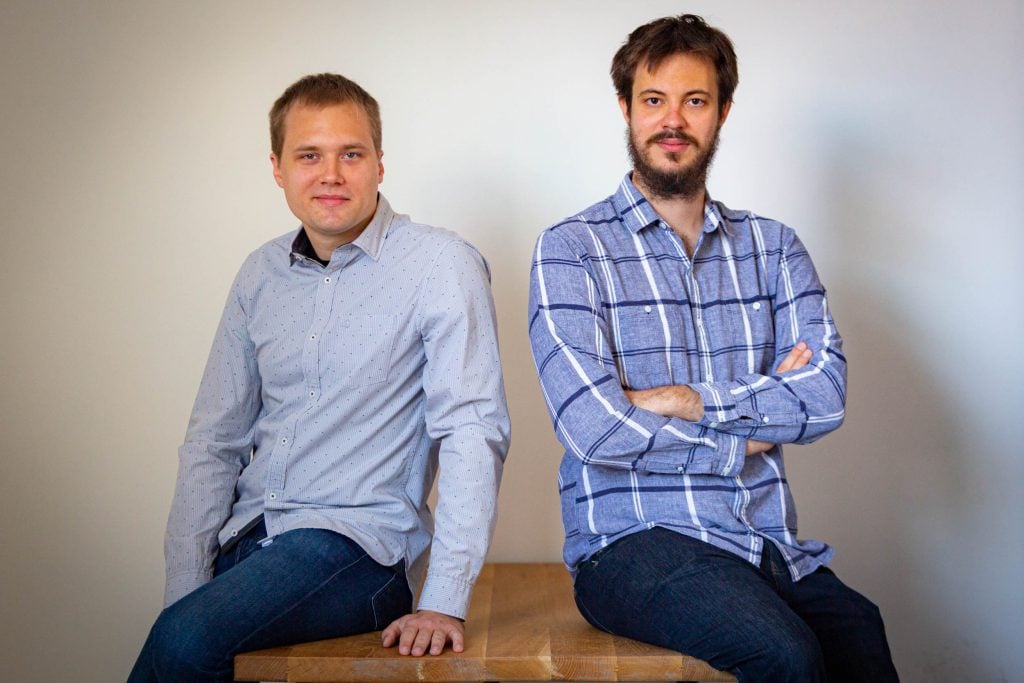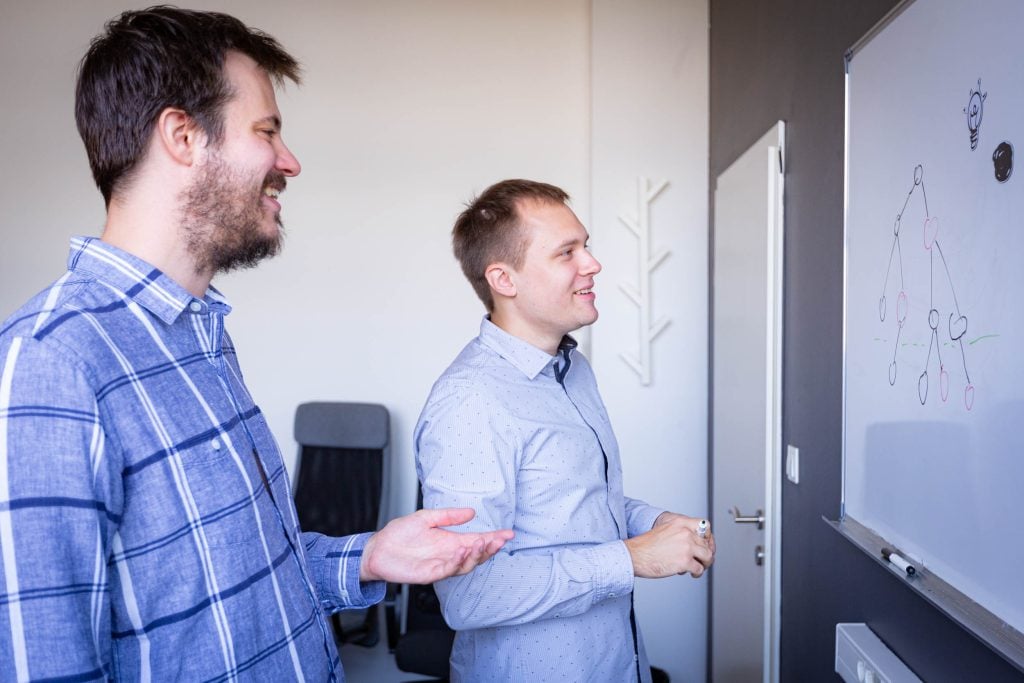Creating the next generation of online search technology is by no means an easy feat. However, for Croatian programmer-turned-entrepreneur Marin Smiljanic and his startup Omnisearch this is the top priority and a mission of the utmost importance.
Based in both Canada, where Smiljanic was working for a number of years, and his native Croatia, Omnisearch is a AI-powered search engine tool for online courses that looks to elevate the edtech industry.
Learning his trade at tech giants such as Facebook, Amazon and MemSQL, Smiljanic is now using all of his experience and know-how in creating what he says is the “search for everything” platform that will play a key part in the next generation of search technology.
In an interview for The Recursive, Smiljanic discusses the transformative potential of AI technology, the hype behind recent projects such as ChatGPT and whether this is justified or not, as well as his expectations and predictions about up-and-coming industry trends for 2023.
The Recursive: Could you take us a bit through your background and how did the idea for Omnisearch originate?
Marin Smiljanic: I got into programming in high school, based on the good math talent that I had when I was a kid. It was back then when I also started taking algorithms courses and programming – first Pascal and then C++. And basically, I used those skills and also my knowledge of algorithms to start getting some real exposure in the tech industry. My first real taste of Silicon Valley and the startup world was when I got an internship at Facebook, which was around 2013.
There I worked on spam filters and other such systems level programming stuff. After that, I joined MemSQL, which is a database unicorn based in San Francisco – very well venture funded and very avant-garde at that point, because they were among the first to build in-memory databases. They creatively combined it so that their database supported both operational workloads and also analytical workloads that interacted together in a seamless way.
Afterwards I joined Amazon, where I stayed for about three years. And there I was on the S3 team, which is part of Amazon Web Services. We were working on Alexa, where we were building the email integration. And Amazon was actually where I first encountered the problem that was the spark for Omnisearch.
Essentially, both of these teams were fairly technically complex, and that meant that we needed to go through a lot of training materials to familiarize ourselves with everything that was going on in these systems and with all the concepts.

The problem was that a lot of this content was in video format, and there was no good way to find information inside. You could search for a title or a description or some sort of metadata, but to go inside it and find something exactly in an hour long video, or in a database of our long videos where something was covered – that was Mission Impossible. And this was the spark that got me and my co-founder Matej Ferencevic to come up with Omnisearch.
What does Omnisearch do and how has the product developed over the past few years?
We say that Omnisearch is basically the “search for everything”. This essentially means that we’re able to index in search any type of content just as easily as text. So whether that’s text itself, more audios or videos, images, presentations or documents of any kind. We’re able to parse all of that with no additional input from the customer or from whoever is using the service, and then find information inside that.
Whether the information is something that is mentioned in a text, whether it’s something being uttered inside a video, and then finding exact moments where that occurs, or even finding objects or text inside the visual parts of the video – all of these things we’re able to do out of the box.
We’re mostly geared towards the B2B segment and we sell to companies. We’re mostly used in what’s called a site search context – basically helping companies power the search on their sites that their own end users use. That’s mostly what we’re about these days and we have a lot of amazing deep technology that we’ve developed under the hood.
And we are a stellar team – my co-founder Matej was one of the earliest engineers at a TechStars alum called Memgraph, and we have a really, really spectacular team.
How does AI assist with online searching and how do algorithms actually improve online search results?
AI has become such a broad umbrella term for a whole lot of different things and as famous US computer scientist Larry Tesler said “AI is actually what hasn’t been done yet”. So when we are discussing this topic are we talking about collaborative filtering methods used to learn from other users similar to yourself, or are we talking about personalization, and so on.
I’m particularly excited about vector methods that have been very big in the past couple of years and are fairly robust when it comes to handling similar concepts in similar words, that are not captured by straightforward, grammatical and semantic rules, such as doing synonyms and whatnot.
Apart from this, they’re also very versatile and they help you find information inside the visual data, like images, or videos or such things. Vector methods have been around for a while and in the past two years, probably OpenAI did a lot of work in that regard. So those are the ones that we’re really excited about because they make our visual searches possible.
The other part is generative AI – being able to synthesize human sounding answers from the information that’s out there. So that’s also another thing that I think we’re only seeing the inception of and that’s going to be big in the next couple of years. Probably I’d even say that it’s going to get integrated into most of the experiences that we know today.
Talking about OpenAI – ChatGPT has been pretty much everywhere during the past couple months. Do you expect similar trends in 2023?
This is one of the things where there’s a lot of random talk on LinkedIn for example from people who I don’t think did their homework from a technical standpoint. But something’s definitely brewing here. And I personally love what I’ve seen from this – it’s able to produce such high quality answers that are synthesized in a really great way, in a really human understandable way.
And I think that this is going to be a major breakthrough. I also believe that these models are going to keep getting better. So perhaps there’s another kind of model architecture brewing that’s going to make it even better to train and make the whole thing provide even more value.
I would say though that one major caveat is that it can still produce factually incorrect answers – and that’s a problem. If anything this was a solved problem in traditional search engines – you might get irrelevant answers, or answers that don’t quite fit what you’re looking for, but if the ranking and quality assurance is good enough, they generally won’t give you stuff that’s flat out wrong.
During the whole fake news controversy, the companies that were the main – call them culprits or call them victims – were the social media companies, it was not the Googles and the Bings.
So when it comes to false information I think that this new generation of GPT models could introduce a problem that we haven’t had before. I think that OpenAI probably does realize this and they’ll focus on better citation of sources, better factual correctness and so forth.
What other industry trends do you expect to become popular in 2023?
I’d say that we are probably going to see a whole lot of startups that will get venture funding and that are basically thin wrappers on top of these kinds of models.
I’m not a huge fan of that because I always lean more towards producing your own IP and owning something good under the hood there, rather than thin wrappers.
But I do think that this has now taken the world by storm to such a degree that more and more companies will start implementing it in their own products, so as to complement the core experiences that they offer.
What are Omnisearch’s main goals for 2023 and plans when it comes to expanding in the Western Balkans?
Omnisearch has predominantly been offering its services in one main vertical, which is education. And this has turned out to be a great fit for us. But now that we got our foothold in that vertical we’re expanding into the next ones. So whether that’s media, e-commerce, or a whole host of other candidate verticals where we’re now talking to potential customers, we definitely think that we’re going to be expanding pretty heavily in 2023. I think that this is going to be the first year where we sign on Fortune 500 customers.

Additionally, one of the main things that is also going to happen in 2023 is to strengthen the engineering team, particularly when it comes to full stack developers. We are definitely looking into the region when it comes to talent – I think the talent level in all of the Western Balkan countries, especially on the technical side, is phenomenal.
There are really the top tier people that could go against anyone in the world, and that’s what makes us super excited. There’s also been a new trend, because when I think about when I was graduating college, about half the people from the IT sector emigrated.
However, now, in the past couple of years, there’s definitely been a shift towards more people wanting to stay because Croatia for example is doing better than it did at that point in time. So we definitely think that this works in our favor.








